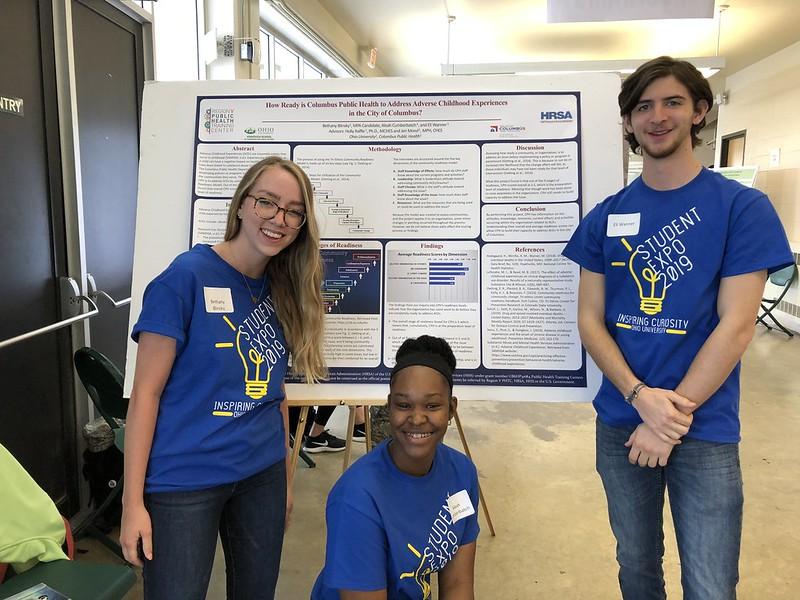
Voinovich School students partner with Columbus Public Health in applied research project

Students at Ohio University’s Voinovich School of Leadership and Public Affairs teamed up with Columbus Public Health (CPH) in spring 2019 to determine the organization’s readiness to address adverse childhood experiences and associated trauma as a means to impact community health outcomes.
Master of Public Administration candidate Bethany Blinsky and Voinovich Undergraduate Research Scholars Eli Wanner and Aleah Cumberbatch worked on the project from January to April, under the supervision of Voinovich School professor Holly Raffle and Jen Morel, a program manager within the Office of Planning and Quality Improvement at CPH.
Initially, Morel reached out to Raffle to develop a project that could be conducted with Raffle’s Programmatic Partnership for Prevention and Promotion at the Voinovich School. Blinsky served as an intern for CPH through a grant from the Region V Public Health Training Center. The project allowed the three students to gain valuable experience in a professional partnership with CPH, and also gave Blinsky the opportunity to spearhead a project and oversee the work of undergraduate scholars Wanner and Cumberbatch.
“I gained so much from interning with CPH. It was the first time I took a managerial role in a project, and I learned how to coordinate schedules, facilitate conversations, work with stakeholders, and manage undergraduate research scholars,” Blinsky said.
The organization wanted to begin addressing the impact of adverse childhood experiences (ACEs) in Columbus, but first needed to assess their readiness to do so. ACEs are traumatic childhood events and include things like seeing a parent misuse substances.
“Our leadership understands that ACEs and associated trauma impact community health outcomes. Mental health and addiction are both a community health and Columbus Public Health strategic priority,” Morel said. “There are currently a few programs that directly address this focus area in the department. However, there is an opportunity to ensure that our 450 staff working across approximately 40 program areas to apply a trauma responsive lens to their daily work.”
The Voinovich School team worked with CPH to develop a research plan, and used the Community Readiness Model developed at the Tri-Ethnic Center at Colorado State University to assess CPH’s readiness. The model measures readiness in five key domains: staff knowledge of efforts, leadership attitudes toward the issues, staff climate, staff knowledge of the issue, and resources.
“Our first step was to get a better understanding of staff knowledge and perceptions about adverse childhood experiences, and how we consider the associated trauma when providing programs and services to the communities we serve,” Morel said.
Blinsky conducted eight hour-long interviews with front line staff, middle and senior management at CPH to gauge staff knowledge and readiness. Wanner and Cumberbatch then scored each interview and determined the organization’s cumulative score. The organization’s readiness was measured by nine stages; research found that CPH was at the fifth level, preparation.